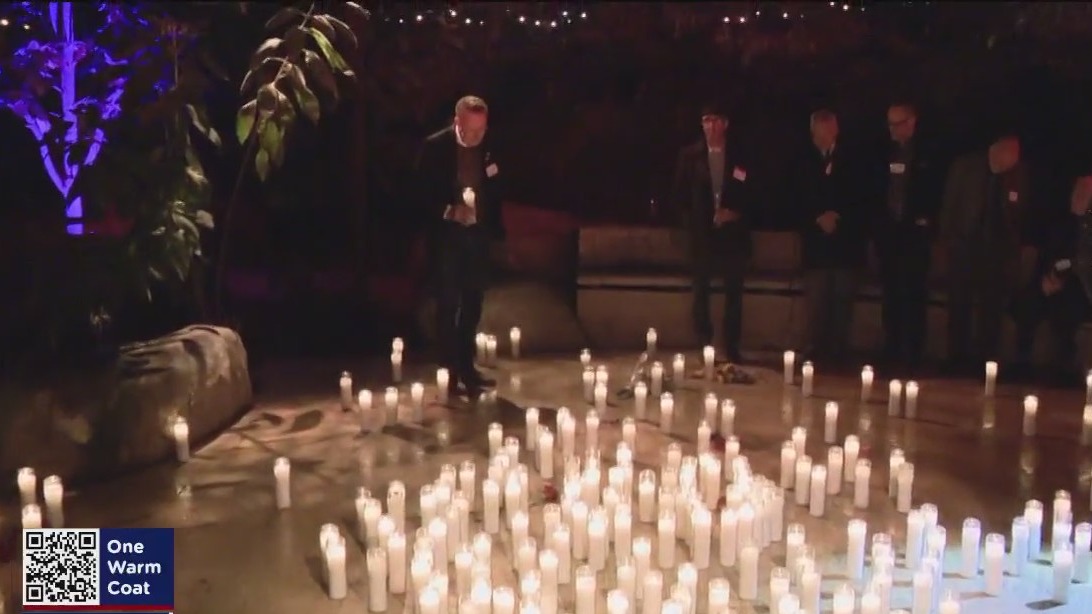San Francisco marks 35th annual World AIDS Day with reflection

San Francisco marks 35th annual World AIDS Day
Dec. 1 is the 35th anniversary of World AIDS Day. San Francisco marked the day with reflection, looking at how far the world has come in responding to HIV/AIDS, and where we stand now.
SAN FRANCISCO - Dec. 1 is the 35th anniversary of World AIDS Day. San Francisco marked the day with reflection, looking at how far the world has come in responding to HIV/AIDS, and where we stand now.
The official ceremony held a moment of silence to remember those who've died from HIV/AIDS over the years.
The observance included four-time Olympic gold medal diver Greg Louganis, diagnosed with HIV months before he would compete in the 1988 Olympics.
"At the time, we thought of HIV/AIDS as a death sentence," said Louganis. "So, as soon as I got my diagnosis I was told to get my affairs in order and I didn't think I would see my 30th birthday."
Louganis disclosed his HIV status to the world in 1995, and since then has worked tirelessly as an advocate. He says even with modern medication keeping the virus in check for those who are HIV positive, it is still a crisis with more people being infected every day.
"It's much more manageable now, but, you know, prevention, prevention, prevention. Educate yourself, protect yourself," said Louganis.
The ceremony was hosted at the National AIDS Memorial, in a stand of redwoods tucked into San Francisco's Golden Gate Park. On the site, a memorial bearing the names of those who've died from HIV/AIDS and those who loved and supported them.
Richard Shadoian was diagnosed with HIV decades ago and has already added his name to the memorial, saying many of those who would have done the same for him have already died and had their names etched in stone.
He also says even as the country has focused on COVID-19 and other illnesses, the AIDS crisis is still unfolding.
"So, I'm still here, which is the good news," said Shadoian. "And I came to remember my friends who aren't here and to try to remind people this isn't over, and we can go on to other issues, but HIV is still a disease that does not have a way to be resolved yet."
The World Health Organization estimates that since HIV was first discovered, more than 85 million people have been infected with the virus and more than 40 million have died.


